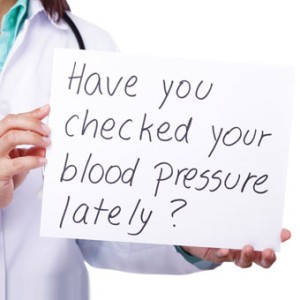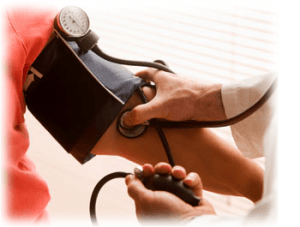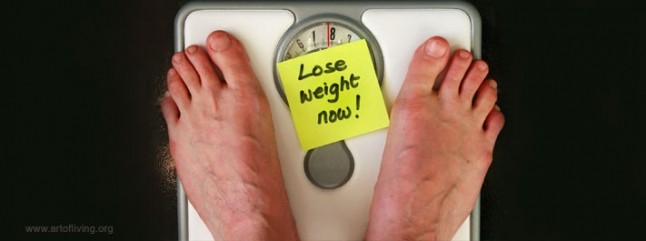Understanding High Blood Pressure
 We constantly hear the term hypertension or high blood pressure, but do we really understand what it is? What causes it? And what are the risks of having it?
We constantly hear the term hypertension or high blood pressure, but do we really understand what it is? What causes it? And what are the risks of having it?
What is hypertension?
Hypertension is defined as abnormally high pressure in the blood vessels, specially the arteries. As blood flows through the arteries in the body, it exerts pressure or force against the artery’s walls. If this pressure is too high, it can lead to severe complications. Think of it as a bicycle tire being inflated by air – if there is too much air, the pressure will be too high and the tire can burst or be damaged. It is the same process with your arteries. Some pressure is needed to move blood flow, oxygen an nutrients, but too much can have damaging consequences such as heart disease and stroke.
Hypertension is the leading cause of stroke and a major cause of heart attack. “In the United States alone, more than 30% of American adults have high blood pressure.”[1]
How is blood pressure measured?
 A blood pressure reading appears as two numbers that tell you the amount of force pushing against the artery walls when the heart contracts and when it is at rest.
A blood pressure reading appears as two numbers that tell you the amount of force pushing against the artery walls when the heart contracts and when it is at rest.
The first and higher of the two numbers is a measure of systolic pressure, or the pressure in the arteries when the heart beats and fills with blood. The second number measures diastolic pressure, or the pressure in the arteries when the heart rests between beats.[2]
Normal blood pressure is considered between 90/60 mmHg to 120/80 mmHg for a healthy adult. Keep in mind that blood pressure can vary among individuals and it is normal for blood pressure to rise and fall with changes in activity or emotional state. Your blood pressure should be measured with an appropriate device, when you are seated, well rested and preferably with your arm resting on a table. Remember: Accuracy is important here!
People with blood pressure readings of 140/90 or higher, taken on at least two occasions, are said to have high blood pressure. Always check with your doctor if you find your blood pressure is high or have any doubts.
What are the risks of having high blood pressure?
Hypertension can affect your blood vessels, brain, eyes and kidneys. If your blood pressure is too high, you can be at risk for:
• Stroke
• Heart attack
• Heart failure
• Dementia
• Kidney (renal) disease
• Eye problems (retinopathy)
• Erectile dysfunction
• Among other complications
What factors can cause Hypertension?
Factors that put you in risk of developing hypertension include but are not limited to:
• Are over age 50
• Are overweight
• Have a sedentary life or are not physically active
• Smoke
• Drink alcohol
• Have a family history of: hypertension, heart disease, diabetes, renal disease.
• Eat foods that are high in salt
• Consume certain medications (ibuprofen, aspirin, decongestants, etc)
I have hypertension. Now what?
If you have been diagnosed or believe to have high blood pressure, it is recommended that you visit your physician for a complete medical check up.
Hypertension is treatable and treatment may include lifestyle changes such as an exercise routine, a healthy diet and simple modifications of daily habits or it can require medical treatment (antihypertensives) or even complementary or alternative treatment.
If you would like additional information on correctly measuring your blood pressure, follow this link:
http://www.bloodpressureuk.org/BloodPressureandyou/Homemonitoring/Howtomeasure
Sources:
WebMD Medical Reference (http://www.webmd.com/hypertension)
American Heart Association (http://www.heart.org)
Mayo Clinic (http://www.mayoclinic.org)
[1] WebMD Medical Reference (webmd.com/hypertension)
[2] American Heart Association (http://www.heart.org)




![Blissful Me – [Oprah & Chopra Desire and Destiny Meditation Experience]](https://www.forevernaturalwellness.com/wp-content/uploads/2017/08/joy7-150x150.jpg)







